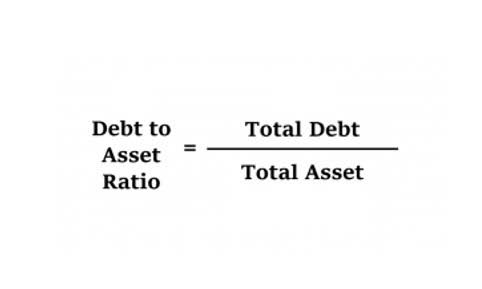CPA vs Accountant: Key Differences, Requirements & Career Paths 2025

Their certification provides them with credibility and legal standing in various fiscal matters, offering clients assurance. Accountants handle foundational tasks such as bookkeeping, preparing financial statements, and processing payroll. CPAs take on advanced functions like tax planning, audits, and strategic financial advice.
What’s The Difference Between a CPA and an Accountant?
You must pass the four-part CPA exam and complete 150 credit hours of college coursework, which is beyond a standard bachelor’s degree. A CPA license opens the door to working in various sectors, including public accounting, financial services, government, and corporate finance. Your work can include tax assistance, auditing, financial accounting, advisory services, and management consulting.
Differences Between Accounting vs CPA
Accountants and CPAs (Certified Public Accountants) both are essential for business functions, and both roles have an important distinction. All CPAs are accountants, however not all accountants are CPAs—that’s because factors such as licensing, their function, skills, and more differ them. While both are accountants, when you look into the duties and tasks of someone working as a CPA vs accountant jobs, there are significant differences, difference between a cpa and an accountant which we will explore below.

Difference Between a CPA and an Accountant

After the exam, you must obtain relevant work experience, typically 1-2 years under a licensed CPA. Licensing requirements can vary by state, so check specific state board mandates to ensure compliance. A Travel Agency Accounting CPA, or certified public accountant, is an accountant who has met strict standards in education, experience, and ethics. In conclusion, both CPAs and regular accountants play valuable roles in the accounting profession, offering a range of services to meet the diverse needs of individuals and businesses. While CPAs bring specialized expertise and authority to complex financial matters, regular accountants may provide cost-effective solutions for basic accounting and bookkeeping tasks. Ultimately, the choice between a CPA and a regular accountant depends on your specific requirements, preferences, and long-term financial goals.
- Our commitment to excellence and personalized service has made us a trusted name in the accounting and tax service industry.
- Following that, you sit for a four-part exam, with each part requiring four hours to complete.
- You’ll need to fulfill additional education requirements, your state’s work experience requirements, and pass the Uniform CPA Exam before applying for licensure.
- CPAs are legally authorized to provide specific services that unlicensed accountants cannot, such as auditing financial statements and issuing attestation reports for public companies.
- Accountants are legally allowed to prepare tax returns, although they may not have as much knowledge of tax codes as a CPA does.
Do all accounting jobs require a college degree?

While accountants handle essential financial tasks, CPAs bring specialized knowledge and legal authority to the table. Working with a reputable accounting firm ensures your business has access to the right expertise at the right time. Michelle Payne has 15 years of experience as a Certified Public Accountant with a strong background in audit, tax, and consulting services. She has more than five years of experience working with non-profit organizations in a finance capacity. Keep up with Michelle’s CPA career — and ultramarathoning endeavors — on https://jupiter.csit.rmit.edu.au/~s4005589/wordpress/index.php/2021/04/16/bookkeeping-services-in-dallas/ LinkedIn. CPAs may have all of those same duties and responsibilities of an accountant, but their extra qualifications mean they are eligible to have additional duties.
EA vs. CPA: What’s the Difference Between These Certifications?
For basic bookkeeping, payroll, or straightforward tax preparation, an experienced accountant can provide adequate, cost-effective support. They are well-suited for maintaining daily financial records and ensuring routine compliance. The main distinction between an accountant and a CPA is certification and scope of practice.
- In a small business or startup, you’ll likely hire a bookkeeper as a part-time employee or an independent contractor.
- Additionally, learning about the differences between accounting and auditing can provide insight into specialized career paths.
- In contrast, accountants do not need to obtain a license to practice unless they are performing certain services like auditing, which only CPAs can perform.
- Whether you need routine bookkeeping or advanced financial strategies, our team is here to guide you every step of the way.
- An accountant typically needs a bachelor’s degree in accounting or a related field.
- Many people use the terms CPA and accountants interchangeably, but they aren’t the same.
Always keep in mind the legal and ethical responsibilities of financial professionals, particularly when it comes to compliance with IRS regulations and tax law in the United States. Choosing the right professional is a crucial step toward ensuring your financial health and success. For basic bookkeeping and tax preparation, a non-CPA accountant may be a more cost-effective solution.

Both of these paths are viable long-term career options for aspiring accounting professionals. Let’s dive deeper into the differences so you can choose which path is right for you. Pursuing a CPA license can be worth it for those who want to work in public accounting, as it can lead to better job opportunities and higher salaries.
- They focus more on the strategy side of organizational management and corporate finance.
- If your business is relatively straightforward and only requires basic bookkeeping, financial reporting, or simple tax returns, hiring a non-CPA accountant can be an affordable and practical choice.
- CPAs are required to obtain a licence from their state board of accountancy before practising public accounting.
- For small businesses, choosing between a CPA and an accountant depends on the business’s specific needs.
- Bureau of Labor Statistics, the median annual wage for accountants and auditors was $73,560 in May 2020, with CPAs earning above-average salaries within this range.
Accountants typically hold a degree in accounting or a related field and work in various industries to help businesses or individuals with financial recordkeeping, budgeting, and tax preparation. The BLS notes that all states require CPA candidates to complete 150 semester hours of college coursework to be licensed. Given that this is more credit hours than you may earn in a typical bachelor’s degree program, many CPA candidates opt to pursue a master’s degree before taking the CPA exam. Becoming a CPA requires meeting specific educational requirements beyond a bachelor’s degree. Candidates must typically complete 150 credit hours of education, including advanced accounting coursework. Additionally, CPAs must pass the Uniform CPA Examination, a rigorous test covering various aspects of accounting and business.



Leave a Reply